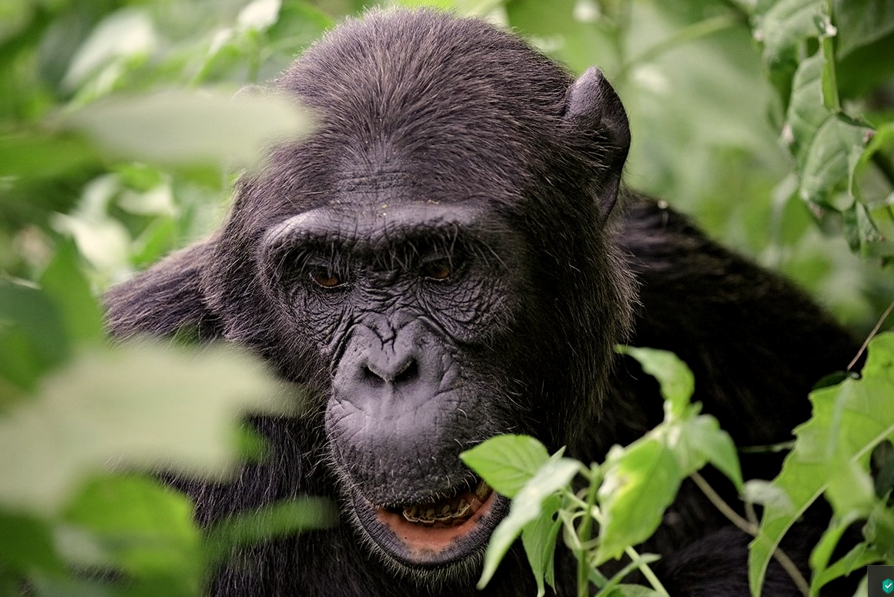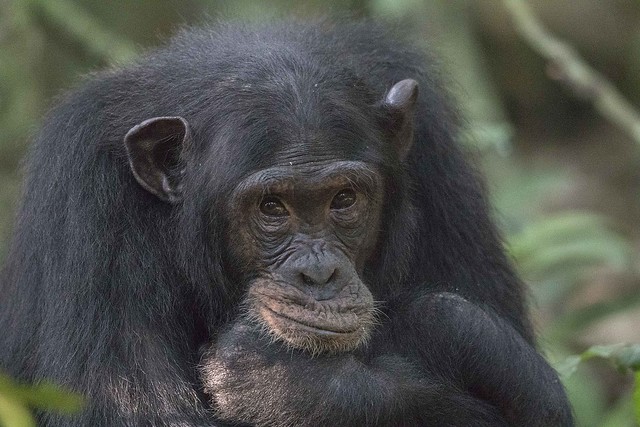Chimpanzee habituation process in Kibale forest national park Uganda- Yes, the Chimpanzee habituation process or experience is one of the wonderful safari adventures that are carried out in Kibale Forest National Park in Uganda. Uganda is special because it has all the experiences related to primates, such as chimpanzee trekking, chimpanzee habituation experience, gorilla trekking experience, and several others. Kibale forest national park is regarded as the primate capital and it is the best place in Uganda where you can go for both chimpanzee trekking and a chimpanzee habituation experience.
Chimpanzee habitat refers to the visitors going to Kibale Forest national Park to enjoy the chimpanzees, who are not yet used to human beings. Chimpanzee habituation is a process that the staff do for close to two years, and thus, during this chimpanzee experience, you will spend the whole day with chimpanzees in Kibale forest national park, seeing how the chimpanzee habituation process is being done by the Uganda Wildlife Authority staff. This experience is available in Uganda all year round, but it is good that you do this safari activity during the dry season to avoid inconvenience.
The Chimpanzee Habituation Experience is a full or half-day experience that requires prior scheduling. Between 6:00 and 6:30 a.m., visitors may see chimps leave their nighttime nests before eating, copulating, hunting, nursing, resting, patrolling, and exhibiting until it’s time to construct new nests around 7 p.m. Various government-accredited local tour providers are available to provide services such as bookings for Chimpanzee Habituation Experiences to ensure that you obtain your slot at the appropriate time.

Despite the muck, the best time to follow chimps is during the rainy season. Chimpanzees prefer to venture deeper into the trees in search of food during the dry season. The woodlands are lush and full of fruit during the wet season, which limits the mobility of the chimp populations. Experience with chimps in captivity. Visitors will have no trouble finding them without having to walk a considerable distance.
Visitors who are interested in this experience of gorilla habituation must spend the night in the Kanyanchu sector, which is located in the northern section of the Kibale Forest National Park and is covered by deep forest, which helps chimpanzee apes survive in the area. The deep forest provides enough food for chimps, so they don’t have to move around much in the forest in search of food. This allows visitors to easily engage with chimp family communities in one location without having to walk or hike large distances through the jungle.
By following clues left behind, the rangers can locate the chimp settlements. Furthermore, habituated chimps recognize the guides’ familiar faces, which gives them comfort. There are two tracking sessions – one in the morning and one in the afternoon – in most parks and reserves where tourists can meet chimps. During the morning session, the chimps are more active as they go out to feed and hunt. Many of the members are resting and grooming one another in the afternoon, as they try to find shade from the sun.
As visitors enjoy trekking the chimps in Kibale, they will have the opportunity to hear the various bird species’ calls as well as see many of them in the forest, as the Kibale forest is also one of the best spots for bird watching, with over 350 bird species, and forest elephants, who can blend in with various environments among other wildlife animals, but are rarely seen in the forest.
Unlike conventional chimp tracking, guests spend the entire day following these fascinating creatures during the chimpanzee habituation experience. Unlike the 4-hour hike, when tourists remain far away, the Chimpanzee Habituation Experience is more strenuous and visitors participate in all habituation-related tasks.
Before dawn rises, visitors must meet the guides and begin a hunt for the chimpanzees before they leave their nests. You’ll witness them wake up and get ready for the day’s activities, which include feeding, relaxing, caring for their young, defending their territory, and finally building nests in trees.
Lunch is typically served because the event lasts all day. At the end of the interaction, you should be familiar with all of the people, including their body insignia and personalities. The bustle comes to an end as the chimps return to their nests for the night.


Comment (0)